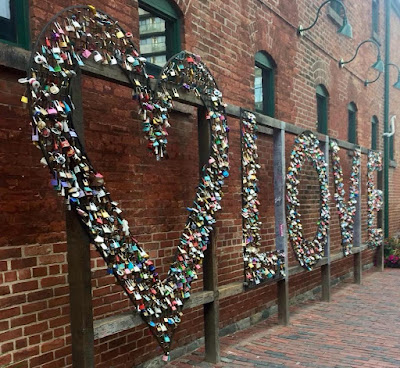I love you. Go ahead. Say it. Often.
Normalize saying, “I love you.”
That sentiment has been popping up on my social media timelines repeatedly over the last year. Different, pretty backgrounds displaying it. Different fonts, added words fleshing out the idea. All of it, though, boiled down to the one sentence: Normalize saying, "I love you."
Growing up, in my household, "I love you" was reserved for special occasions and for certain people. It was like there was a certain quantity of “I love yous” that were available and each one needed to be carefully weighed before being meted out. "I love you" was said, certainly, but in my home, actions were used in place. If I was gifted something special — an object, time off, use of the family car — that was proving love. I wouldn’t be the recipient of a gift if the giver didn’t love me.
For a passionate girl — someone who boldly wears her heart on her sleeve, someone who loves words, values words, treasures words — when "I love yous" were sparse, my soul shrunk inwards. When the words were vocalized, my soul bloomed. Knowing that, recognizing that, I began to say the words myself, even if they weren’t reciprocated.
Doing that, though, can be dangerous. When I say "I love you," I mean it. And loving freely can mean that sometimes the wrong person gets to hear my declaration of love. A careless romantic partner, a friend who’s untrue, a family member who uses that love to weaponize. And therein lays the choice: continue to speak the words or revert back to a place in time where they are whispered sparingly?
Interestingly enough, My Favourite Husband said “I love you” first. And maybe, because it was the first time in my life that I could visualize a future with a romantic partner, see a life together, I was careful with my response. I knew I loved him and was in love with him, but I also felt that saying the words out loud was making a promise, a commitment. This. This was serious. And while all the love I hold in my heart is genuine, is real, this was one person. Was I ready to say it and to live up to what it meant? I was. And so, for the first time, I said "I love you" back and committed to the idea of forever.
During the 27 years we were together, the words "I love you" were said uncountable times. Usually initiated by me, they soon became commonplace in our vocabularies. My last conversation ended with "I love you," saying it and hearing it. I will hold that close always.
Saying "I love you" can bring joy and happiness. It can also bring the sting of rejection and betrayal, now and in the future, if it’s carelessly tossed aside or goes unacknowledged.
Despite that, I’ve chosen to let everyone who has claimed a piece of my heart hear those words repeatedly because it’s important to me to let those people know how I feel.
The first few times, saying "I love you" can be awkward. "Does she mean like a love interest? Does she want something? Is she sick? Dying? Why is she telling me she loves me? Ahhhhhhhhhhhhhhhh!"
But then something interesting happens. "I love you" shifts from being awkward to being beautiful and natural. It becomes a way to end a conversation and it also becomes a way to start a conversation. "I love you" is so natural, in fact, that it is said with the recipient knowing the reason it’s being said is for no other reason than expressing feelings of the heart, the place that’s held in the heart.
When I say "I love you" to the people who matter in my world, they know that it’s meant genuinely with no other intent.
In a world where love and kindness can be in short supply, where words are used to defend and attack, I’m glad my world includes the normalization of saying "I love you."
I love you.



Comments
Post a Comment